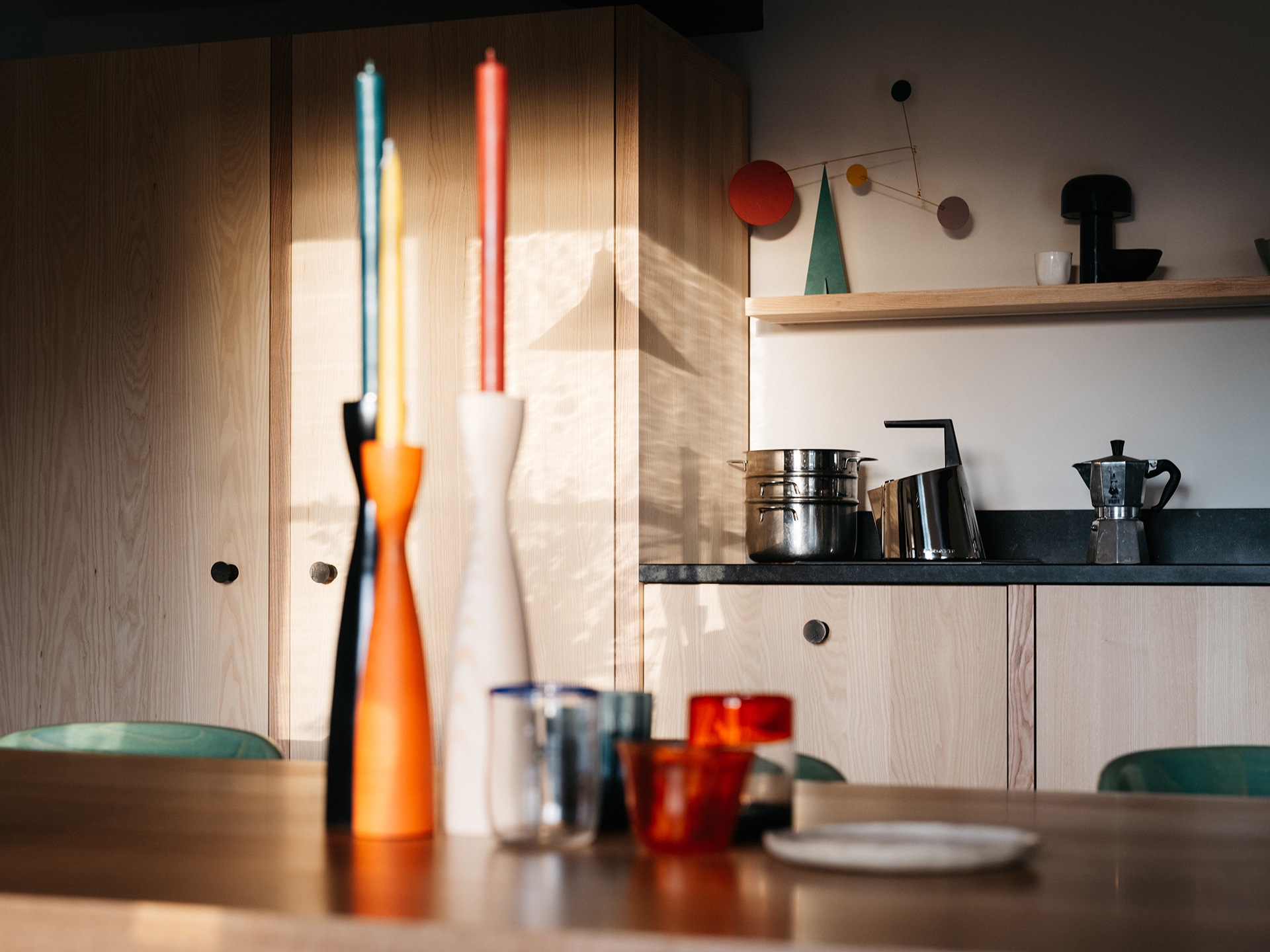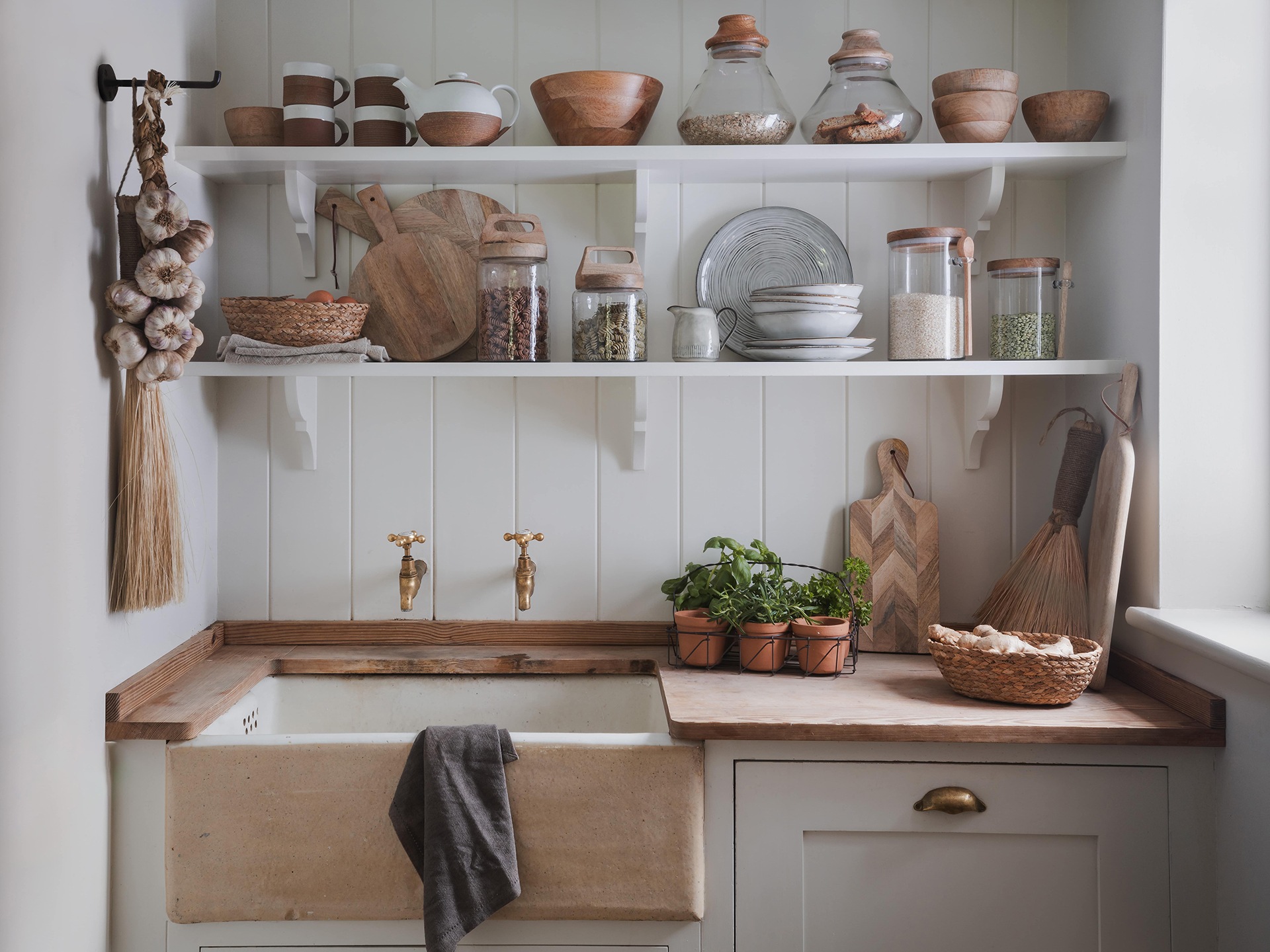Freestanding kitchens: Is this the end of the fitted kitchen?
Top furniture designer Will Floyd McLean says freestanding kitchen units are the sustainable choice. Here’s why
Celebrated joiner and furniture designer Will Floyd McLean argues freestanding units are a more sustainable choice than fitted kitchen – and he’s put his money where his mouth is with his new company that makes stylish, sustainable modular kitchens designed to last a lifetime.
We talked to Will to find out more about why he believes the future of kitchen design is freestanding…
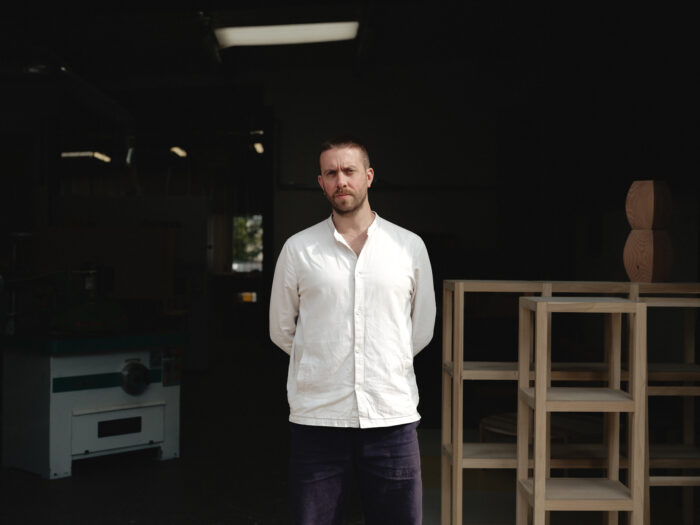
Image credit: Elliot Sheppard
Will explains, “The furniture industry is plagued by short-lived products made from non-renewable materials, which depletes natural resources and contributes to a cycle of waste and pollution.
“This systemic problem means 20 million pieces of furniture are thrown away in the UK each year – most of which goes straight to landfill.”
The problem with built-in
He points out that built-in furniture – such as fitted kitchens – is almost impossible to repurpose or reuse, and is therefore highly likely to end up in landfill at the end of its life.
“Fitted furniture is single use by definition, regardless of the length of its guarantee,” he says.
New company
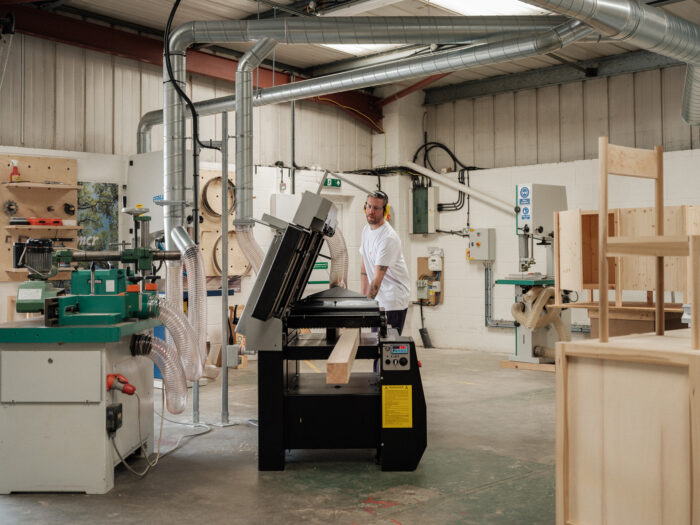
Image credit: Elliot Sheppard
Will has set up his company Somer as a way to help solve this problem by offering homeowners a more sustainable way to refit kitchens using freestanding modular units rather than built-in ones.
The idea is that, when you want to reconfigure the room or move house, you can move the units around, disassemble them if need be, add in new ones, and/or take them with you.
Buy-back scheme
You can even sell units back to Somer for refurbishment and resale, or, at the end of its life, return your kitchen to them to be recycled.
Maintenance and repair
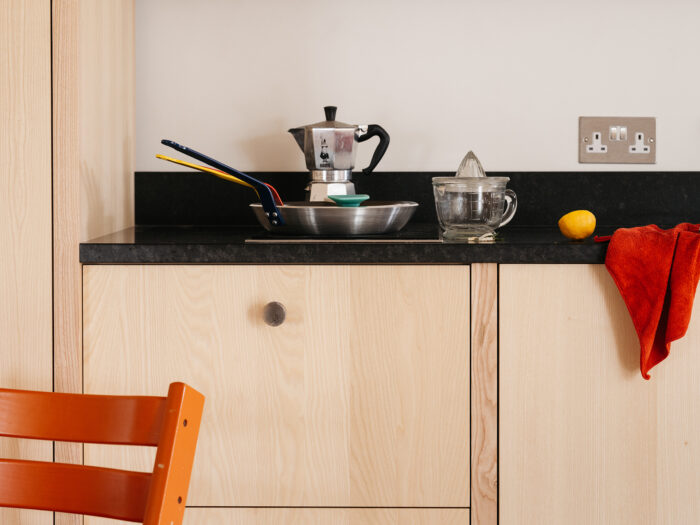
Image credit: Lewis Ronald
The units are also designed to be easy to maintain and repair to ensure a long life.
Will’s motivation
Before setting up Somer, Will spent a decade making top-quality joinery for the coolest art shows and architecture exhibitions in London.
Carpenter of choice for artists seeking to commission bespoke creative pieces, he worked in collaboration with other top designers, making one-off pieces for art shows and exhibitions.
Sometimes he was asked by architects to make furniture for creative spaces and private clients, but much of his work was for exhibitions – and he found that the pieces he and his team had laboured to produce were often simply thrown away when the exhibition ended.
Will says, “It was heartbreaking. We were commissioned to make things – and then to break them up at the end of a show.”
Witnessing waste
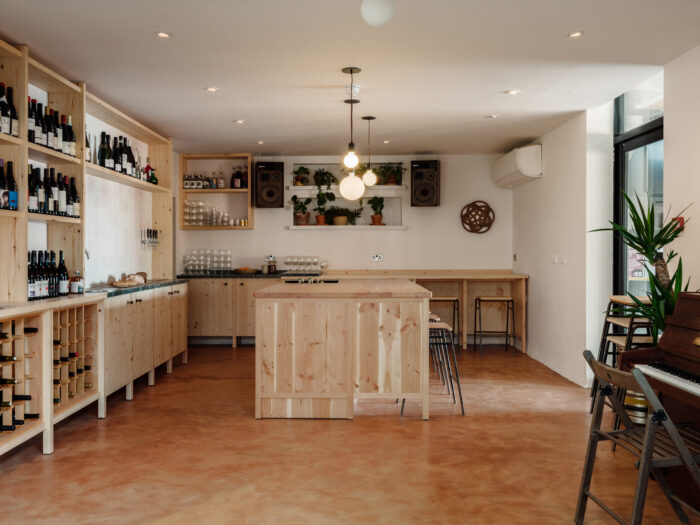
Image credit: Elliot Sheppard
After witnessing some particularly egregious examples of waste, Will could stomach it no more, and he knew he had to put his talent to use in a new – and more sustainable – direction.
He recalls, “After months of working on a joinery project for a major public art client, they told us to dispose of £150,000 worth of beautifully made cabinets. It was at that moment I realised there had to be a better way.”
Taking back control
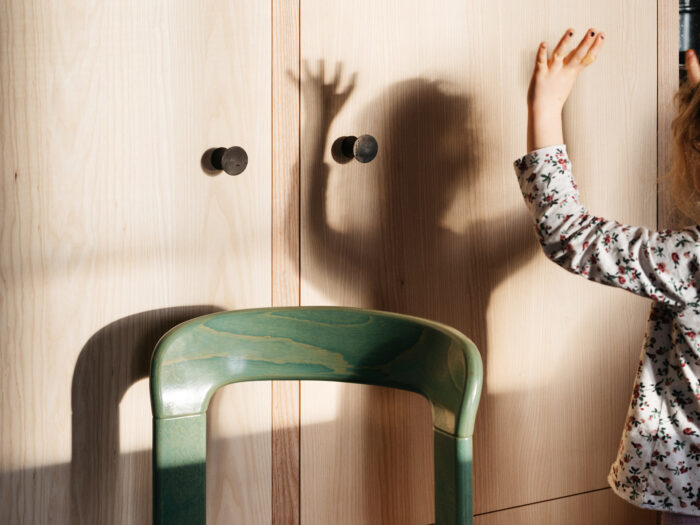
Image credit: Lewis Ronald
Will wanted more control over the work he was making: “We became determined to take matters into our own hands – to take much greater control and agency over what we’re doing, which felt critical given the state of the planet.”
And so the idea for Somer was born.
Will points out that, for a product to be truly sustainable, its end of life has to be thought about and ‘designed in’ from the very start.
He says, “It’s not something you can just do as an afterthought. It’s too late at that point. Ultimately, that is irresponsible.
“It’s our job as designers to be designing how we want the world to be tomorrow, not just as it stands today.
Designing in circularity
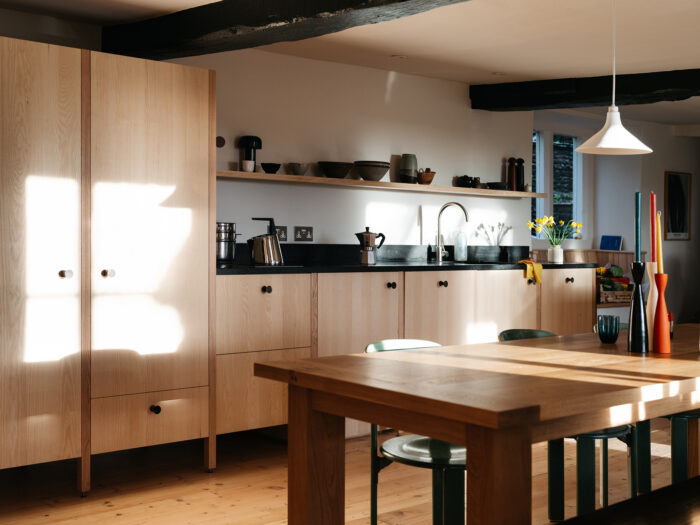
Image credit: Lewis Ronald
Somer’s website states, “People everywhere are being ripped off paying for furniture that fails, cannot be repaired or reused, and pollutes the planet we all share.
“We’re here to change that. We’re challenging throwaway culture with a new model for furniture design and production.
“We believe waste is a design flaw – it should be eliminated at the sketchpad.
“While circularity – the potential to repair, reuse, and recycle – must be designed in from the beginning.”
Supply-chain transparency
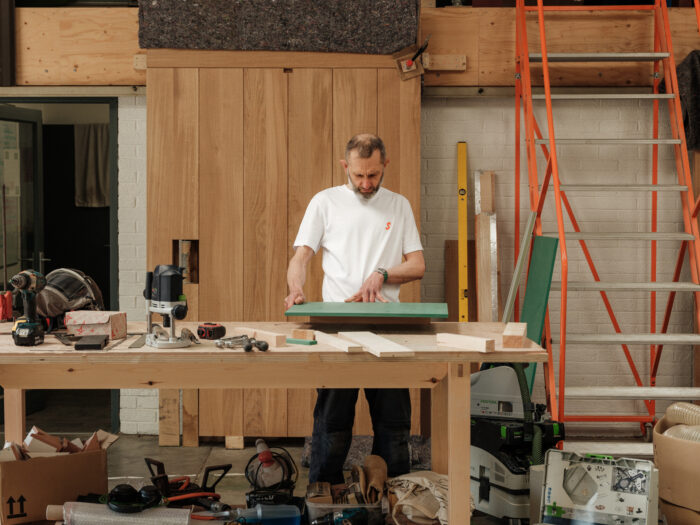
Image credit: Elliot Sheppard
Will continues, “At Somer, with our new model, we’re giving ourselves agency over the specification of the materials that we’re using.
“So, for example, we limit the number of different species of timber that we use to give greater transparency over the supply chain.”
Will has designed a range of contemporary modular units that he believes will stand the test of time so that they won’t need replacing every few years.
He says, “That will save you money and reduce waste. The modular design lets you adapt and expand your space as your needs change.”
Timeless not trend driven
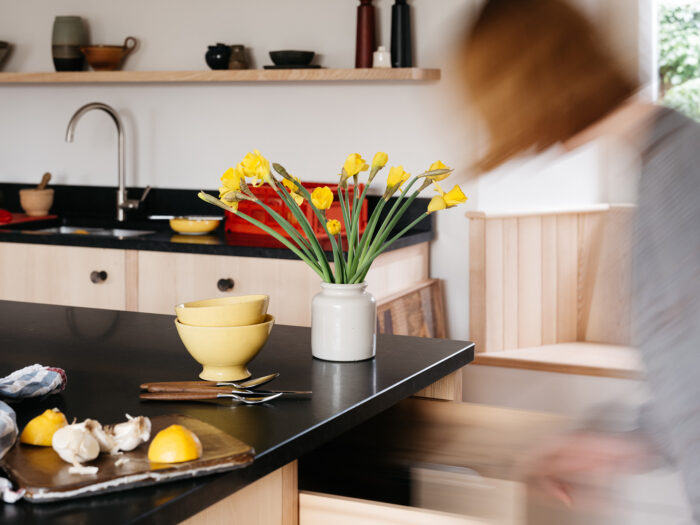
Image credit: Lewis Ronald
Interiors fashions can be trend driven but Will has spent time coming up with designs he feels are timeless and classic: “We’ve spent a lot of time stripping back our design and really honing a simple aesthetic.
“That’s hard to get right – from a design point of view, successfully executing something very simple is complex. But I feel like we’ve done it.”
He adds, “I also think we’ve got a product that sits as comfortably in a modern contemporary environment, as it does in a period setting.
“We’ve put kitchens in Victorian and Georgian properties, now, as well as modern apartments. And they work in all those settings.”
Mix and match
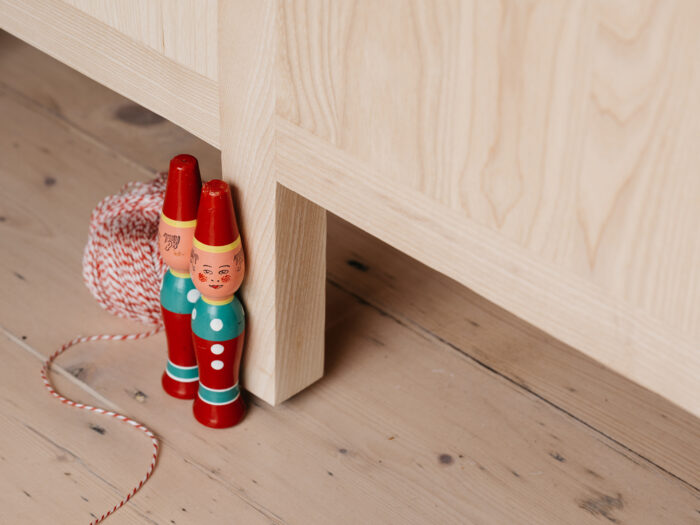
Image credit: Lewis Ronald
A range of units is available, from standard cupboards to open shelving units, island units to units to house integrated appliances, all built using timber joints. You mix and match pieces to create your perfect kitchen.
Custom pieces are also available to slot in, and, for most kitchens, a custom-sized unit or two are added to achieve the perfect fit.
The units are beautiful: very simple and minimalist, with no kickplates at the bottom.
They come in four slightly different designs, in a range of different timbers including spruce, oak, beech, Douglas fir and ash, and can be finished in a range of different stains, oils, and VOC-free natural paints.
The firm uses as much local timber as possible and is working towards Grown in Britain certification, (which involves using native timber responsibly sourced from woodlands managed to UK Forestry Standards).
Worktops
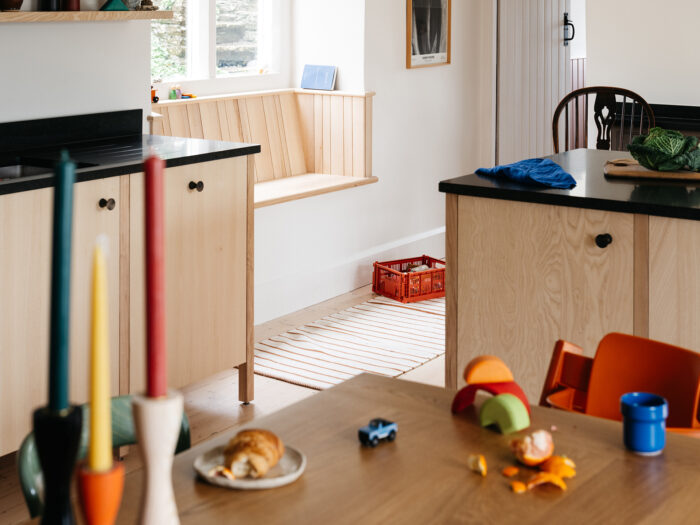
Image credit: Lewis Ronald
Somer offers timber worktops, or can advise on compatible worktops of other types.
Their standard knobs are unusual and unique beautiful smoked ceramic knobs handmade by Granby Workshop in Liverpool.
Somer-set roots
Will’s change of direction coincided with a move from London back to his native Somerset, the county where he grew up, and which has given its name to his new firm – Somer is based in Frome, not far from Stroud where he grew up.
Somer’s manifesto is “To transform the furniture industry, one piece at a time.”
It’s an ambitious goal. But there’s much truth in what Will says about waste and reuse.
And, if we’re committed to helping protect the planet, in the same way as many are turning to investment dressing over fast fashion, perhaps it’s time we considered investing in timeless furniture built to last a lifetime.
READ MORE:

